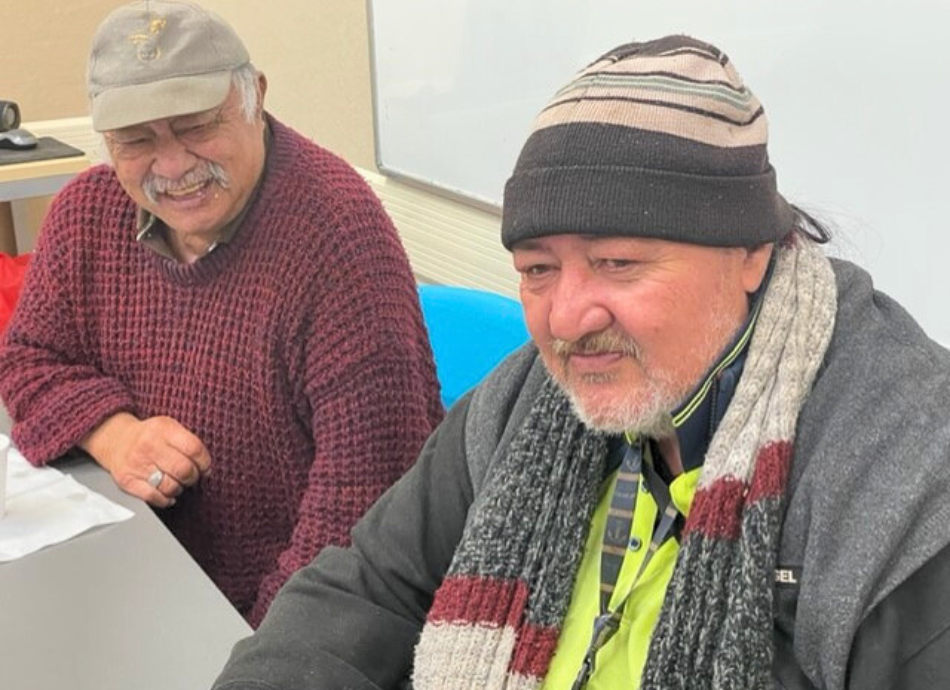- Doxazosin is used to treat symptoms of an enlarged prostate such as difficulty in beginning the flow of urine, weak urine flow and the need to urinate (pee) frequently or urgently (including during the middle of the night).
- It belongs to a group of medicines called alpha-blockers.
- It works by relaxing the muscles in your prostate and part of your bladder. It doesn't make your prostate smaller.
- Doxazosin is also used for high blood pressure, in combination with other medicines.
Low or no data? Visit zero.govt.nz, scroll down the page then click on our logo to return to our site and browse for free.
Doxazosin
Sounds like 'dox-az-oh-sin'
Key points about doxazosin
- Doxazosin is used to treat symptoms of an enlarged prostate.
- Doxazosin is also used for high blood pressure, in combination with other medicines.
- Take your first dose at bedtime.
- Find out how to take it safely and possible side effects.

In Aotearoa New Zealand doxazosin is available as 2 mg (oval-shaped) and 4 mg (diamond-shaped) tablets.
- The starting dose of doxazosin is 1 mg (milligram) once a day.
- Your doctor may increase your dose over a few weeks to 4 milligrams a day. This allows your body to get used to the medicine.
- Depending on your response, your doctor may increase your dose to 8 milligrams a day. Some people may need a higher dose.
- Always take your doxazosin exactly as your doctor has told you. The pharmacy label on your medicine will tell you how much doxazosin to take, how often to take it and any special instructions.
- First dose: You can feel dizzy and faint when you first start taking doxazosin so it's usually recommended to take the first dose at bedtime. Read more about dizziness and fainting in the Possible side effects section below.
- Timing: After the first dose on day 1, you can take doxazosin at any time of the day. Take it with a glass of water at the same time each day.
- Food: You can take doxazosin with or without food.
- Missed dose: If you forget your dose, take it as soon as you remember. But if it's nearly time for your next dose, take the next dose at the usual time. Don't take double the dose.
- Keep taking doxazosin regularly: Treatment with doxazosin is usually long-term. You should continue to take it unless you are advised by your doctor to stop. Talk to your doctor or nurse before stopping.
- Read some tips to help you remember to take your medicines regularly.
Here are some things to know when you’re taking doxazosin. Other things may be important as well, so ask your healthcare provider what you should know about.
- Doxazosin can cause dizziness and fainting, especially after the first dose and in older people. Take this dose at bedtime. Read more about dizziness and fainting in the Possible side effects section below.
- Alcohol: Limit alcohol while you're taking doxazosin. Alcohol can increase the chance of side effects such as feeling dizzy or faint.
- Driving: Be careful when driving or using tools until you know how this medicine affects you.
- Other medicines: Doxazosin interacts with some medicines, herbal supplements and rongoā Māori, so check with your doctor or pharmacist before starting doxazosin or before starting any new medicines.
- Surgery: Tell your healthcare provider that you're taking doxazosin if you are having any surgery, including surgery on your eyes (eg, a cataract operation).
- Pregnant: If you become pregnant while taking doxazosin, tell your doctor immediately.
- Pregnancy or breastfeeding: If you plan on becoming pregnant or want to breastfeed, talk to your doctor first.
Like all medicines, doxazosin can cause side effects, although not everyone gets them. Often side effects improve as your body gets used to the new medicine.
Dizziness and fainting
Your first dose of doxazosin may make you feel faint, dizzy or light-headed for a few hours after taking it. This can also happen when you increase the dose you’re taking.
To minimise the impact of this effect:
- Take this dose at bedtime.
- Be careful when moving from a sitting or lying position, as you are at risk of falls. This is important to remember if you get up during the night.
- Stand up slowly from a sitting or lying position.
- If you feel dizzy or faint, remain lying down until these symptoms have gone.
- Don't drive or use tools or machines until you know how this medicine affects you.
You should also limit or avoid alcohol while you are taking doxazosin – alcohol increases your chance of having side effects.
Other side effects
| Side effects | What should I do? |
|---|---|
|
|
|
|
|
|
|
|
|
|
|
|
| Read more about medicines and side effects and reporting a reaction you think might be a side effect. | |
If you think a child or someone else has taken a medicine that is not for them, call the New Zealand National Poisons Centre(external link) immediately on 0800 764 766 for advice. Read more about what you can do in the event of a poisoning.
The following links provide further information on doxazosin. Be aware that websites from other countries may contain information that differs from New Zealand recommendations.
Doxazosin(external link) New Zealand Formulary Patient Information
Apo-Doxazosin(external link) Medsafe Consumer Information Sheet (NZ)
Doxazosin(external link) Patient Info, UK
References
Doxazosin(external link) New Zealand Formulary
Apo-Doxazosin(external link) Medsafe Data Sheet, NZ
Brochures

Medicines and side effects
Healthify He Puna Waiora, NZ, 2024

Health Quality and Safety Commission, NZ, 2019 English, te reo Māori
Credits: Sandra Ponen, Pharmacist, Healthify He Puna Waiora. Healthify is brought to you by Health Navigator Charitable Trust.
Reviewed by: Stephanie Yee, Pharmacist, Auckland
Last reviewed:





